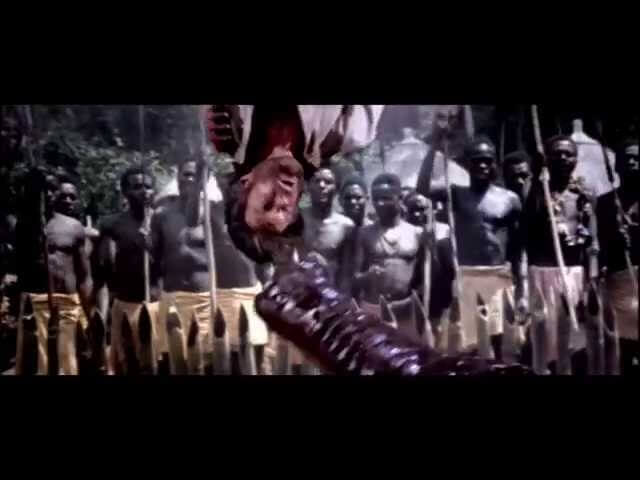A nostalgic doc celebrates one of the craziest chapters of the video-store era

Every day, Watch This offers staff recommendations inspired by a new movie coming out that week. This month: The A.V. Club atones for its sins of omission, recommending the best movies of the year that we didn’t review.
Electric Booglaloo: The Wild, Untold Story Of Cannon Films (2014)
Mark Hartley, the documentarian behind Not Quite Hollywood: The Wild, Untold Story Of Ozploitation! and Machete Maidens Unleashed!, has made a career out of celebrating cinema’s more lawless outposts. And despite a notable lack of exclamation points in the title, Hartley’s newest, Electric Booglaloo: The Wild, Untold Story Of Cannon Films, is an equally lively portrait of an equally colorful period in B-movie history. Movie lovers raised on weekly trips to the local Mom-and-Pop video shop are probably already familiar with the Cannon name, which conjures up images of blue-eyed ninjas, off-brand barbarians, and other odd interpretations of ’80s genre hits. (A Cannon film “completely resembles something, minus good taste,” as one of the interviewees explains.) Turns out that, like many of the most transcendently bizarre B-phenomena—Troll 2, The Room, Miami Connection, Dangerous Men, et al.—the “almost-but-not-quite” Cannon aesthetic was the result of film-obsessed foreigners trying, but not quite succeeding, to re-create the American movies they loved so dearly.
Enter Menahem Golan, a leading figure in ’70s Israeli cinema who recruited his cousin, Yoram Globus, to help him make the transition to Hollywood. The duo bought an “independent” (a.k.a. skin flick) company called Cannon, then set to work releasing films at what all involved agree was an insane rate. The films were funded through pre-sales to foreign buyers, which in practical terms means that the company would draw up a bunch of posters for nonexistent movies and then hastily produce the ones that sold, frequently making up plots on the spot. But amid this anything-goes atmosphere, Golan retained ambitions of making Cannon into a “real” movie studio. That led not only to flirtations with auteurs drawn by promises of total artistic freedom, but also Golan’s own, inevitably tone-deaf attempts at Oscar bait. And it was this same tone deafness that brought Cannon down as it released terrible “prestige” picture after terrible “prestige” picture, leading a horrified MGM—which had signed on to distribute Cannon on the strength of low-budget hits like Breakin’—to drop the studio.
Like Hartley’s previous works, Electric Booglaloo is presented in a standard documentary format, combining talking-head interviews with Cannon actors and crew with clips from their films, plus an animated opening sequence for spice. But montage and juxtaposition are Hartley’s strong suits, and his jazzy editing keeps the film moving along at a brisk pace. It helps, of course, that there are so many outrageous film clips to choose from, and many of the interviewees seem positively bemused when remembering their days working for Golan and Globus, who by all accounts were walking caricatures of themselves. Notably absent from the list of interviewees, however, are Golan and Globus themselves, who declined to participate in Electric Boogaloo. (Golan died shortly after its completion, in August 2014.) Instead, in true Golan/Globus form, they quickly put into production a competing Cannon Films documentary, The Go-Go Boys—which, as Hartley notes in a postscript to his film, was completed and released before this one.
Availability: Electric Booglaloo: The Wild, Untold Story Of Cannon Films is currently streaming on Netflix. It is also available on DVD, or can also be rented or purchased from the major digital services.